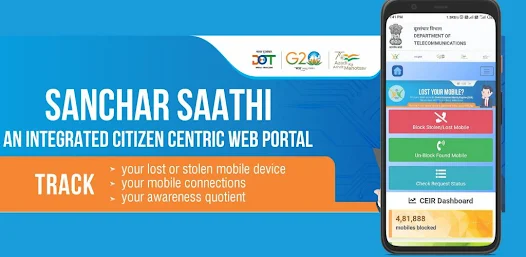Free Courses Sale ends Soon, Get It Now


Free Courses Sale ends Soon, Get It Now



Copyright infringement not intended
Picture Courtesy: play.google.com
Context: Reforms introduced by the Union Minister for Telecommunications to address cybercrimes and financial fraud. The reforms are aimed at strengthening the citizen-centric portal called Sanchar Saathi and implementing changes to the bulk procurement of SIM cards.
Sanchar Saathi
Since its launch, Sanchar Saathi has achieved several results, including:
Reform on Point of Sale (PoS)
Reform on Bulk SIM Cards
Challenges and Observations
Overall, these reforms are introduced to strengthen cybersecurity, prevent fraud, and enhance accountability in the telecommunications sector in India.
|
PRACTICE QUESTION Q. What is the main objective of the Sanchar Saathi portal? 1. To provide free internet access to citizens. 2. To promote the sale of mobile devices. 3. To facilitate communication between government officials. 4. To combat cybercrimes and financial fraud related to mobile connections. How many of the above statements is/are correct? A) Only one B) Only two C) Only three D) All four Answer: A Explanation: D) To combat cybercrimes and financial fraud related to mobile connections. The Sanchar Saathi portal is designed to tackle issues such as cybercrimes and financial fraud by offering services that help citizens verify connections, block stolen phones, report suspicious connections, and authenticate devices. |
© 2024 iasgyan. All right reserved